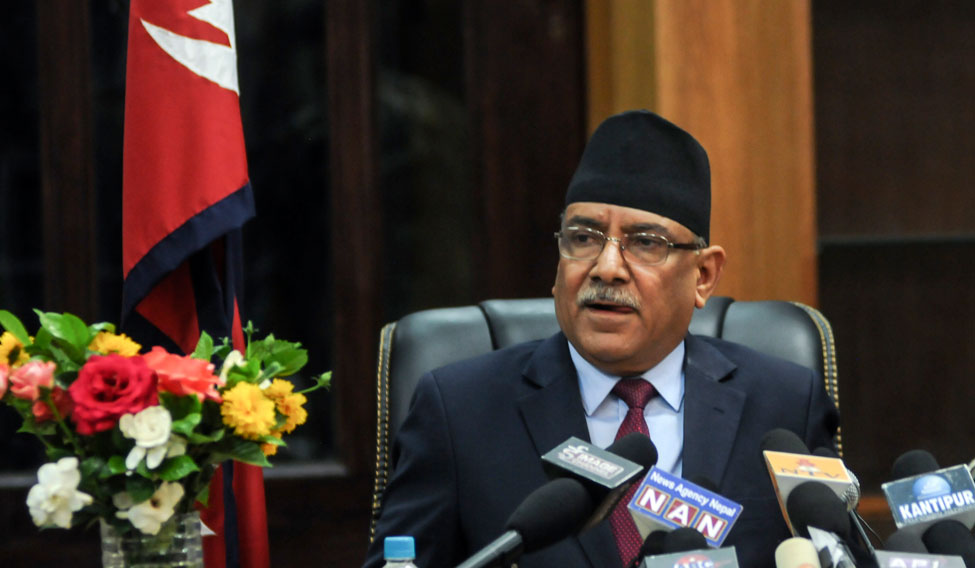Nepal Prime Minister Pushpa Kamal Dahal 'Prachanda' on Wednesday announced his resignation, in keeping with his agreement with the Nepali Congress, which had propped up his coalition government since last August.
Nepali Congress leader Sher Bahadur Deuba, who has also been the Prime Minister earlier, is likely to succeed him.
Prachanda, who made the announcement of his resignation in a televised address to the nation from his office, said it would end "a long drought of trust in Nepali politics".
There were several examples in Nepal's politics that leaders made commitments but never honoured them, he said.
"But today I am going to set an example and as per the accord reached with Nepali Congress, I am going to announce my resignation," he said.
Prachanda had earlier decided to announce his resignation in Parliament but changed his mind after the main opposition Communist Party of Nepal-Unified-Marxist-Leninist obstructed the house proceeding on Tuesday against the government decision to increase local units in various Tarai/Madhes districts. That would bring the Madhes-based parties in the local polls scheduled to take place in June 14.
After approving the resignation, President Bidhya Devi Bhandari will call on political parties to form a new government on the basis of two-thirds majority as per the constitutional process. If parties fail to garner two-thirds votes, the President will call for formation of the new government on the basis of majority votes.
It is likely that Deuba will contest for the Prime Minister's post on the basis of majority votes on the support of Prachanda's Communist Party of Nepal-Maoist Centre and take over probably by the end of next week.
He is likely to hold the second round of local polls on June 14 and will stay in power in February until periodic elections take place.
The agreement between Prachanda and Deuba was to run the government on a rotational basis until the next parliamentary elections in February 2018. Prachanda was to hold office till local polls are held and remaining two elections—provincial and central—were to be conducted under Deuba.
In his address, Prachanda said he was leaving as a "successful Prime Minister", highlighting the achievements of his government in ten months in office. The achievements included balancing ties with India and China, ending years' long power outrage and some good beginning in the fields of economy, health, infrastructure, education and, most importantly, holding the local elections which was considered challenging and crucial.
In his second stint in power, Prachanda was elected the 39th Prime Minister after forging alliance with the Nepali Congress on August 3, 2016.
He had become Prime Minister for the first time in August 2008 after his party emerged as the largest political party from the Constituent Assembly elections in the same year.
After then President Ram Baran Yadav turned down the Cabinet decision to remove the then army chief Rookmangud Katawal and ordered Katawal to remain in the office, Dahal had resigned on May 4, 2009.
Nepal held the first phase of local elections on May 14 in three provinces, mostly in hills, where the CPN-UML is reported to be ahead.
The second phase is to be held in four provinces, mostly in the plains known as Tarai or Madhes, where the number of local bodies is almost twice as those that went to polls in the first phase.










